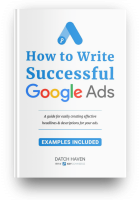Google is preparing to launch a new part of its Privacy Sandbox project. This long-term plan will make online advertising more private by eliminating third-party cookies.
Starting in July 2023, when you update to Chrome version 115, a message will appear titled “Improved ad privacy in Chrome.” The note explains Google's promise to give you more say in the ads you see.
Chrome will now remember what you've looked at online, allowing websites to show ads based on your interests. The message may appear differently to each person, based on the privacy laws in their area.
Understanding Privacy Sandbox:
Privacy Sandbox is a big project that replaces the old way of tracking users with third-party cookies. Websites have used these cookies for a long time to watch what you do online, which wasn't great for privacy. Privacy Sandbox has better ways to track things, according to Google, that are more private and safe than old cookies.
Ad Topics and Better Privacy:
One cool thing in Privacy Sandbox is “Ad Topics.” This groups you based on what you look at online, but it only happens on your device and stays there. Advertisers can figure out what you like without knowing who you are. Another thing, “Site Suggested Ads,” lets websites suggest ads to you while keeping your identity safe.
Options for You:
The pop-up message lets you choose what info you want to share. You can click on “settings” to see different choices. You can turn off certain features, stop seeing ads about specific topics, or block certain websites from suggesting ads. Plus, Google promises to delete Ad Topics, Site Suggested Ads, and Ad Measurement data after 30 days.
Privacy Sandbox is better than third-party cookies regarding privacy. However, you can still turn off these features if you want more control over your online tracking.
Future Plans:
Google's Privacy Sandbox project is ongoing and will keep changing in the next few months. They were supposed to eliminate third-party cookies by 2022, but now they plan to do it by 2024.
The delay was due to what people in the industry said and what regulators wanted. They'll start turning off third-party cookies for 1% of Chrome users in the first part of the next year and get rid of them for everyone later.













